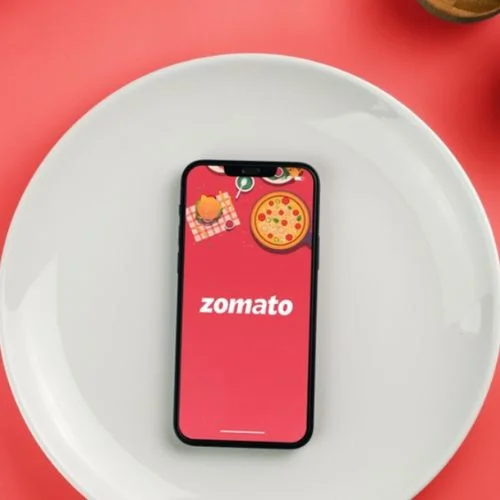The Indian telecom sector may become a two-player game, Increased competition and postponed tariff increases could effectively result in a Jio-Airtel duopoly with Reliance Jio and Bharti Airtel stepping up their efforts to attract premium subscribers with new postpaid offerings and unlimited 5G data while struggling Vodafone Idea has yet to launch its 5G services despite acquiring spectrum last year.
Analysts have repeatedly stated that tariff increases by Indian telecom companies are imminent; however, this has yet to occur. Despite the fact that Bharti Airtel has stated that there is a “need for tariff correction” Vodafone Idea has stated that a tariff increase is required before the end of 2022.
Earlier, global brokerage Jefferies predicted that Bharti Airtel and Reliance Jio would raise their tariffs by 10% each in the fourth quarters of FY23, FY24, and FY25.
To be clear, Airtel has raised the price of its base plan from 99 to 155 across all telecom circles in India, but this is the extent of price increases thus far.
A delayed tariff hike, while negative for the sector, would be especially damaging to Vi’s survival hopes, and could effectively lead to a duopoly, likely resulting in accelerated market share gains for Bharti and Reliance Jio,” according to a report by Kotak Institutional Equities.
The Vodafone Idea is stuck between a rock and a hard place. Jio is pursuing premium subscribers on multiple fronts, including 5G, the postpaid segment, and now pay TV via its 198 broadband plan. Airtel has also aggressively expanded its 5G presence and is now on par with Jio in terms of data allowance.
Vodafone Idea is caught between a rock and a hard place, with tariff increases and 5G monetization on the back burner. With a subscriber loss of over 5.3 million between October and December 2022, no 5G launch on the horizon, and no fundraising so far, Vodafone Idea’s survival would be harmed the most.
“Over the next 12 months, Vodafone Idea (Vi) faces a cash shortfall of 5,500 crores and a delay in tariff hike/fund-raise; this could lead to Vi closing shop and accelerated market share gains for Reliance Jio and Bharti,” according to the Kotak report.
If Vodafone Idea raises its tariffs unilaterally, it risks accelerating subscriber loss. If it does not, its ARPUs will remain suppressed even as it loses a large number of subscribers each month.
The pursuit of premium subscribers
Both Jio and Airtel are on the lookout for premium subscribers; in the absence of tariff increases, luring premium subscribers is the only other way to boost average revenue per user (ARPU), a key metric in assessing a telecom company’s performance.
These premium subscribers fall into two categories: those who have a postpaid account and those who consume a lot of data.
Jio’s postpaid promotion
In the first case, Jio’s latest postpaid offerings provide users with 75-100GB of high-speed 4G data for $399 per month, with a 99 additional charge per user.
According to a report by Kotak Institutional Equities, “the new family postpaid plans effectively cap the customer outgo at 205-235 per month and provide an arbitrage for higher-end prepaid subscribers to move to family postpaid [plans] to reduce their outgo per connection.” In comparison, Jio’s ARPU in the December 2022 quarter is 178.2.
Airtel competes with Jio by offering unlimited 5G data. The other option is to attract data-intensive users. After restricting its 5G users to existing allowances under 4G plans, Airtel is now offering unlimited 5G data, similar to Jio. While Airtel and Jio aren’t charging extra for 5G services just yet, unlimited data is a ploy to get users hooked on 5G speeds that have reached 1.5Gbps in some cases.
According to a Jefferies report, “we believe there is greater uncertainty on tariff hikes in the near term given that large capacity creation with 5G will shift focus to boosting utilisation.”
Airtel and Jio are competing to expand their 5G coverage; after trailing Jio for several weeks, Airtel now has 5G in over 500 cities, while Jio has 5G in 406 cities.
In stark contrast, Vodafone Idea has yet to launch its 5G services, and the telco has lost over 5.3 million subscribers since Airtel and Jio launched 5G services in October.
Multiple state elections and the 2024 general election, according to Kotak analysts, could force telcos to postpone tariff hikes while also giving them enough time to build out 5G coverage across the country. However, this exacerbates the situation for Vodafone Idea, which has the lowest ARPU of the three telcos at $135.
Jio’s broadband backup plan is dubbed “disruptive.”
Apart from its new postpaid plans and unlimited 5G data, Jio has also announced a new fiber broadband plan priced at 198 per month, dubbed the “broadband backup plan.”
However, ICICI Securities analysts believe it has the potential to disrupt cable TV providers as well as Airtel’s direct-to-home (DTH) business.
We believe the new plan is aimed at cable subscribers who have seen significant increases in their cable bills as well as a decrease in the number of channels available. “The new Reliance Jio plan will offer more content (OTT + live TV) and fixed broadband data at largely pay-TV prices,” according to an ICICI Securities report, adding that the IPL 2023 will be streamed for free via the JioCinema app.
According to JP Morgan analysts, this new plan will help the company expand the total addressable market of fixed broadband, which is currently only 30 million. According to the ICICI Securities report, the cable/DTH market has 110-130 million customers.
“Jio is going on offense as it shifts its focus to premium subscribers.” “We anticipate that this disruptive innovation at the bottom of the market will put pressure on Bharti,” according to the JP Morgan report.
For the time being, Vodafone Idea must find a way to stem subscriber losses and prevent further market share erosion. The launch of 5G services, as well as aggressive coverage expansion in key areas, should benefit the telco. It remains to be seen whether or not it will come to fruition.















